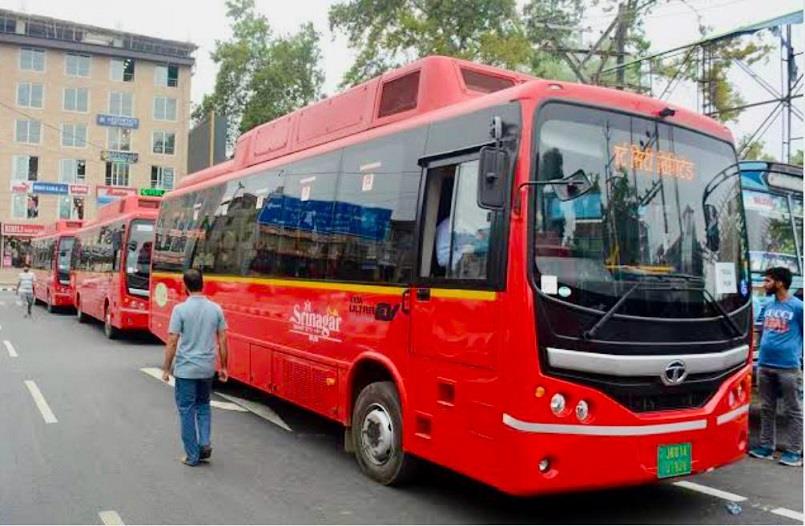
A Ride Too Far: How Free Transport Backfires In Kashmir
File photo of Smart City Electric Bus
By Aamir Basharat Qureshi
On an autumn morning in Srinagar, a government eBus hums past Lal Chowk. Its bright frame gleams in the sunlight. Women board, smiling at the promise of free travel. The gesture feels progressive. It signals mobility, inclusion, and care. It is meant to empower.
The reality is harsher. Running a bus costs money. Fuel, electricity, driver wages, battery maintenance, insurance, and repairs do not disappear when fares are waived. Over time, revenue gaps turn into operational losses.
ADVERTISEMENTThe JKSRTC and eBus fleets, once hailed as modern assets, struggle to pay salaries, cover maintenance, and keep buses running. A service intended to support citizens now risks becoming a burden on the system itself.
Private transport suffers in parallel. Minibuses, shared cabs, and taxis that once relied on women passengers see their ridership shrink. Revenues drop. Drivers, conductors, mechanics, and roadside vendors face layoffs and idled vehicles. Fuel stations, local eateries, and repair shops feel the pinch. The policy's impact spreads across Srinagar and smaller towns alike, silently straining the local economy.
The policy does not target the people who need it most. Many women using free transport are salaried professionals who can afford their commute. Students and rural commuters remain underserved. Buses are overcrowded, routes are irregular, and seats are scarce. A blanket free-travel policy fails to reach the students who struggle to reach colleges or schools each day.
Solutions exist that balance generosity with sustainability. A smart pass system could give students subsidized or free travel during academic months, verified by their schools. Digital fare collection could reduce losses, track ridership, and allow authorities to plan routes and schedules efficiently. Time-bound concessions could prioritize school and college hours. Rechargeable monthly or quarterly passes could offer discounts without collapsing the revenue model.
Integrating private transport into a hybrid public-private system could ensure both sectors thrive. Coordination could expand access, maintain livelihoods, and prevent a single policy from destabilizing the entire transport network.
Generosity cannot replace planning. When revenue disappears, maintenance falters. When private operators leave, commuters have fewer options. When buses degrade, the promise of mobility erodes.

Legal Disclaimer:
MENAFN provides the
information “as is” without warranty of any kind. We do not accept
any responsibility or liability for the accuracy, content, images,
videos, licenses, completeness, legality, or reliability of the information
contained in this article. If you have any complaints or copyright
issues related to this article, kindly contact the provider above.


















Comments
No comment